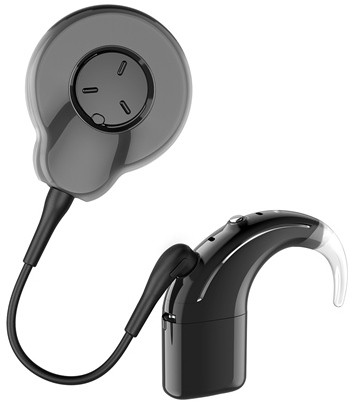- Services
- ENT Services
- - Allergy Testing
- - Head and Neck Surgery
- - Hearing, Balance, and Ear Conditions
- - Oncology for Head & Neck Cancers
- - Pediatric ENT Conditions
- - Sinusitis and Other Nasal Conditions
- - Speech and Swallowing Problems
- Audiology Services
- - Balance Testing (VNG)
- - Bone Conduction Solutions
- - Cochlear Implants
- - Hearing Aids
- - Hearing Loss
- - Hearing Protection and Ear Molds
 A cochlear implant is a sophisticated electronic device that can provide a sense of sound to individuals with severe to profound hearing loss who derive limited benefit from traditional hearing aids. It consists of both internal and external components. The internal part is surgically placed under the skin behind the ear and directly stimulates the auditory nerve, while the external part captures and processes sound to transmit signals to the internal component.
A cochlear implant is a sophisticated electronic device that can provide a sense of sound to individuals with severe to profound hearing loss who derive limited benefit from traditional hearing aids. It consists of both internal and external components. The internal part is surgically placed under the skin behind the ear and directly stimulates the auditory nerve, while the external part captures and processes sound to transmit signals to the internal component.
Cochlear implants can significantly improve speech understanding and communication abilities for suitable candidates, enhancing their quality of life by restoring access to sound and spoken language. At AOP, we offer comprehensive information about cochlear implants, including eligibility criteria, surgical procedures, post-implant rehabilitation, and ongoing support for individuals considering this life-changing intervention.
What is a cochlear implant?
A cochlear implant is a small, complex electronic device that can help to provide a sense of sound to a person who is profoundly deaf or severely hard-of-hearing. The implant consists of an external portion that sits behind the ear and a second portion that is surgically placed under the skin (see figure). An implant has the following parts:
- A microphone, which picks up sound from the environment.
- A speech processor, which selects and arranges sounds picked up by the microphone.
- A transmitter and receiver/stimulator, which receive signals from the speech processor and convert them into electric impulses.
- An electrode array, which is a group of electrodes that collects the impulses from the stimulator and sends them to different regions of the auditory nerve.
An implant does not restore normal hearing. Instead, it can give a deaf person a useful representation of sounds in the environment and help him or her to understand speech.
Information has been obtained from the National Institute on Deafness and Other Communication Disorders.



